Weighing the needs of patient and researcher
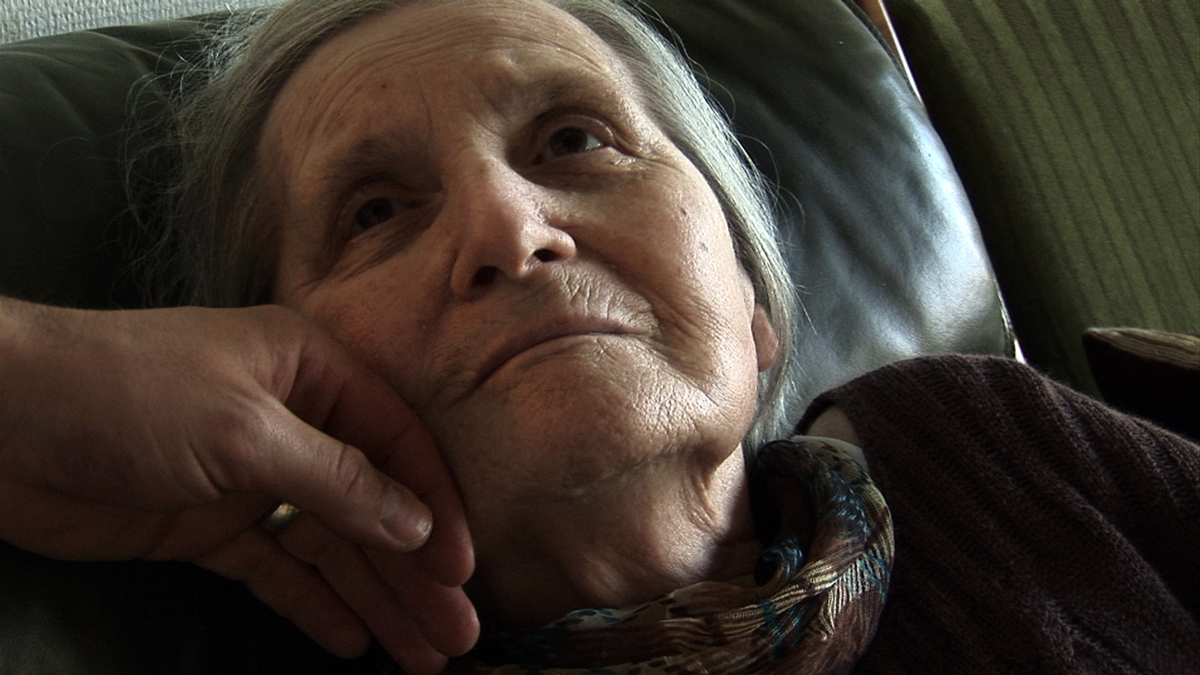
Voters will have the final say in March on a constitutional amendment aimed at preserving human dignity in biomedical experiments and ensuring freedom of research.
There is agreement among experts about the legal principles on human research but opinions differ over involving people who cannot give their consent to tests, including children and the mentally handicapped.
The amendment sets the basis for more detailed legislation the 26 largely autonomous cantonal authorities will have to apply if the vote goes through on March 7.
The national commission on biomedical ethics, an advisory body to the government, has an important role in defining the scope of the regulations.
“Human dignity, the individual and health come first,” said Otfried Höffe, a professor of philosophy who heads the commission. These values have to be guaranteed and protected during research and, if necessary, also protected against the interests of research, he adds.
Höffe is convinced that it is important to streamline regulations between the cantons.
“From an ethical point of view it is crucial to apply the same rules across the country,” he told swissinfo.ch.
Theologian Ruth Baumann-Hölzle, one of 18 members of the commission, says she is “mainly in favour of the constitutional amendment”.
She says it amounts to weighing legally protected interests against each other. A patient or a person in care must be protected from bodily harm as defined by Swiss law.
But at the same time research projects must not be blocked to maintain the freedom of research “in the sense that people with an illness could benefit from improved quality of life, and from better conditions when they die”.
Vulnerable
If a patient is able to take an informed decision, he or she can consent to participate in an experiment which could contribute to advancing the healing process or help lead to recovery.
But those who suffer from an illness are more vulnerable than healthy people, says Baumann-Hölzle.
“Out of sheer desperation infirm people might agree to take part in potentially very dangerous experiments, hoping a particular therapy could help,” she said.
Baumann-Hölzle adds it is useful to set up expert panels to act as a sort of filter to prevent such incidents and to ensure human dignity.
Equally problematic are cases where people with limited cognitive powers cannot express their opposition, particularly children and mentally handicapped people.
For Höffe there is no doubt that children are entitled to benefit from research which could pave the way for new medical treatments. It goes without saying that a panel examining such experiments has to be aware of possible conflicts and require the utmost restraint and sensitivity.
Sticking point
The sticking point remains, despite extensive considerations by the ethics commission, what criteria to apply to make a conclusive judgment. “It is almost impossible to do,” said Baumann-Hölzle.
An even more difficult decision to take is to what extent patients with dementia can be involved in experiments from which they have no direct benefit.
Such methods would be allowed if the risks and stress caused are “minimal”. according to the draft constitutional article.
“Research without the informed consent of the test person is a form of exploitation,” Baumann-Hölzle cautioned.
“People become a means to an end if they cannot give their approval personally to the risks they are subjected to in an experiment,” she added. “This goes against the principle of human dignity as such.”
But therein lies a paradox. This group of patients is excluded from the benefits of possible therapies if it cannot take part in such experiments, Baumann-Hölzle says.
She points out the specific case of drugs for children. For a long time it was not possible to run tests with minors.
Compromise
A possible compromise solution for Baumann-Hölzle is to put further limits on such research and take into account the illness and the health of the test person.
For instance that experiments into a drug for patients with dementia can only be made using people suffering from such an illness, she explains.
Both Baumann-Hölzle and Höffe agree that research must be subject to a very high degree of restraint and that it is up to the researchers to prove that they are taking the necessary precautions.
After all, the law is not only about saving the test persons from harm, but also about protecting the researcher from their own ambitions, they argue.
Christian Raaflaub, swissinfo.ch (adapted from German by Urs Geiser)
The constitutional article on human research is one of three issues that come to a nationwide vote on March 7.
Supporters, including the government and a majority in parliament, argue nationwide rules are needed to better protect test persons but still ensure the freedom of research.
Currently research on humans is only partially covered by legislation at the federal level.
The main areas include transplantations, gene technology and stem cell research, but in other areas the cantons are largely autonomous, which results in considerable differences between the 26 authorities.
Opponents warn of interference by the federal authorities in cantonal matters and criticise the perceived lack of protection for people who cannot give informed consent to experiments, including children and the mentally handicapped.

In compliance with the JTI standards
More: SWI swissinfo.ch certified by the Journalism Trust Initiative



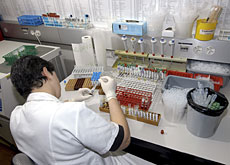
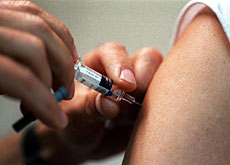
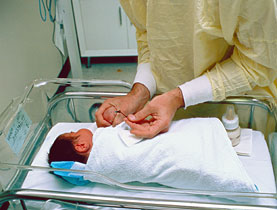
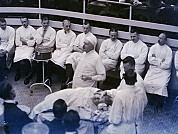
You can find an overview of ongoing debates with our journalists here. Please join us!
If you want to start a conversation about a topic raised in this article or want to report factual errors, email us at english@swissinfo.ch.